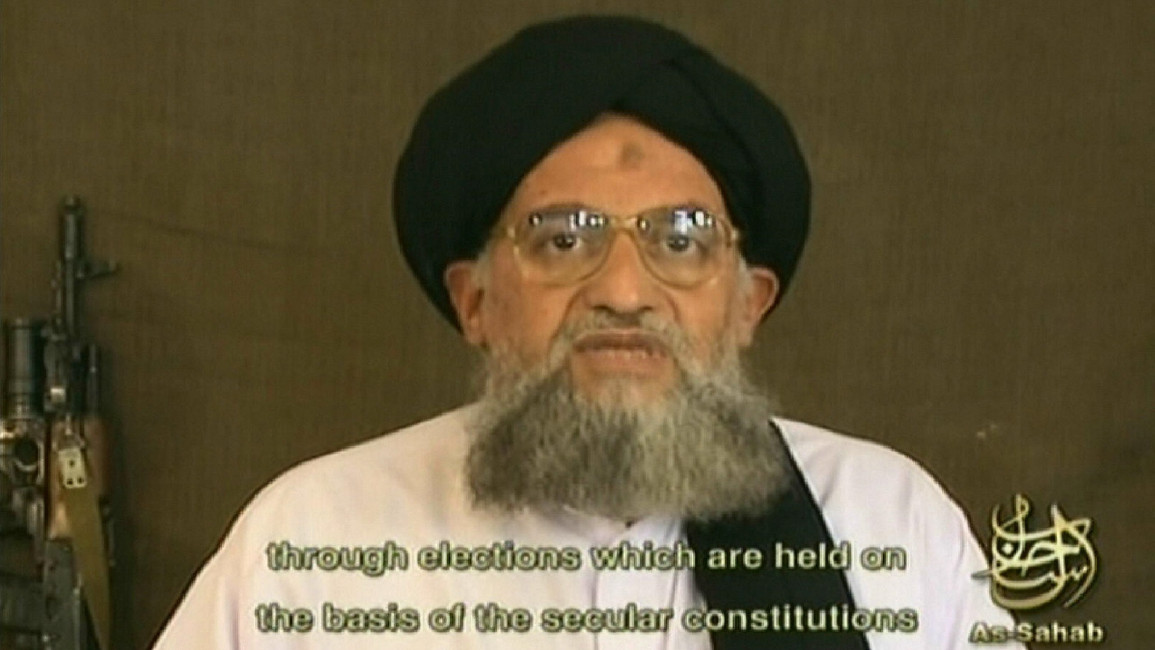Al-Qaeda leader tells Syria's al-Nusra it can cut ties
The comments, released in an audio message on Thursday, are an apparent endorsement of al-Nusra's plans to cut ties with its parent organisation, al-Qaeda.
The six-minute recording instructs "the leadership of the Nusra Front to go ahead with what protects the interests of Islam and Muslims and what protects jihad" in Syria.
"You can sacrifice without hesitation these organisational and party ties if they conflict with your unity and working as one body," Ayman Al-Zawahiri said.
"The brotherhood of Islam among us is stronger than any organisational affiliation... Your unity and unification is more important to us than any organisational link."
Nusra's shura ["consultation"] council reportedly voted to break ties with the terrorist group after a split in its ranks emerged earlier this week following the announcement of coordinated Russia-US airstrikes against the jihadi armed group.
Analysts say Nusra aims to rebrand itself as a more nationalist - but still jihadi - oufit in order to defend itself from outside and domestic pressures. It comes as Moscow and Washington reportedly agreed to step up joint efforts against the group.
"Whatever Nusra does, its ultimate objective is to further embed itself into Syria's revolution and secure its long-term future" as a legitimate rebel group, analyst Charles Lister tweeted.
Nusra first emerged in January 2012 - 10 months after Syria's conflict began with anti-government protests that were brutally repressed by President Bashar al-Assad's regime.
It is Syria's preeminent jihadi group, along with its key rival the Islamic State group.
But unlike IS, which opposes all those who fail to swear allegiance, Nusra has worked alongside an array of rebel groups fighting Assad's regime and has popular support.
Nusra is a key member of the al-Qaeda network, alongside North Africa's al-Qaeda in the Islamic Maghreb and al-Qaeda in the Arabian Peninsula, based in Yemen.
But it has been eclipsed in recent years by IS due to its brutality, success on the battlefield in Syria and Iraq, and militant attacks in Europe and elsewhere.
Agencies contributed to this report.



